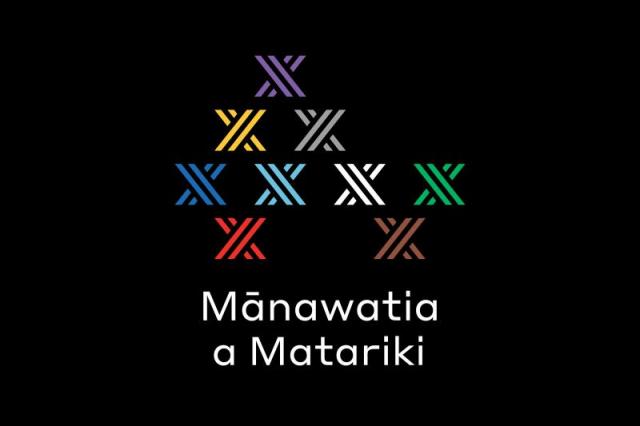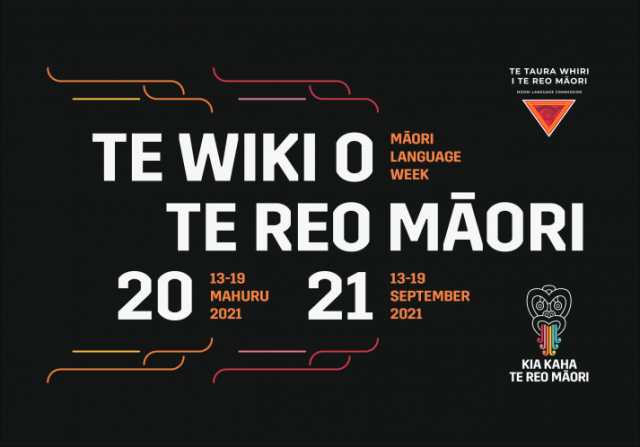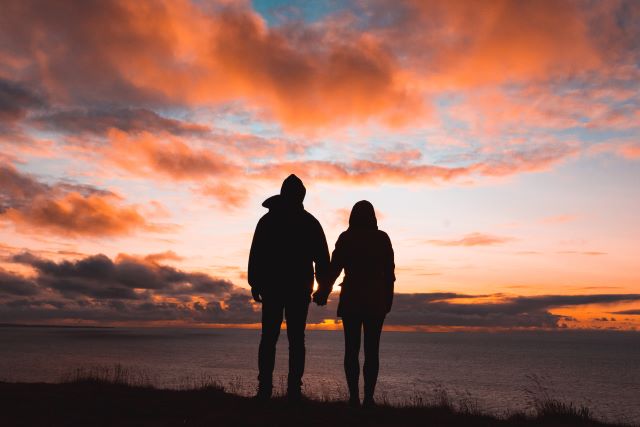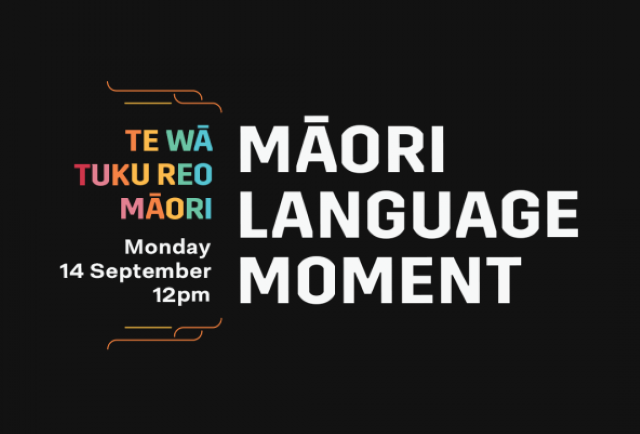Te Wiki o Te Reo Māori 2022: History, stories and connections
Fri 23 Sep 2022
In recognition of Te Wiki o Te Reo Māori, we highlight a new documentary about the journey of te reo Māori revitalisation, the new campaign to share stories about your te reo Māori journey, and resources and research about connecting to te reo Māori.
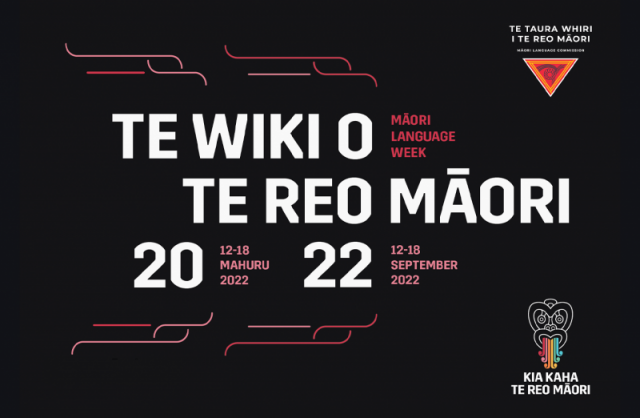
Te Wiki o Te Reo Māori 2022
Te Wiki o Te Reo Māori 2022 celebrates 50 years since the Māori Language Petition was presented to parliament on 14 September 1972. The 14th September became Māori Language Day and later Māori Language Week. This year also marks 35 years since te reo Māori became an official language and the launch of the Māori Language Commission in 1987 through the Māori Language Act.
In the lead up to Te wiki o te reo Māori, Māori Language Commissioner, Professor Rawinia Higgins said
"For Māori New Zealanders, te reo is not just a language to revitalise, it is part of our identity. Those of us who want to ensure the language of our ancestors is also the language of our mokopuna are not just woke, we are wide awake and we always have been."
Commissioner Higgins also said:
“More New Zealanders than ever before see te reo as part of their identity as a New Zealander and that speaking te reo is something to be proud of. 35-years ago when te reo became an official language of New Zealand, many feared that te reo would divide us. But in 2022 te reo brings us together. It is the language of Aotearoa and everyone who calls Aotearoa home.”
The 50th anniversary of the Māori language petition was commemorated at Parliament this year.
Waka Huia (episode 17, season 2022) released a documentary that celebrates te reo Māori through the lens of the Māori Language Commission. The episode highlights the journey of Te Reo revitalisation. The video is available from Waka Huia's Facebook page and YouTube in te reo Māori with English captions:
Once again, Waiata Anthems week took place the week before on 5 - 11 September 2022 with 20 new waiata released. Co-founder, Dame Hinewehi Mohi said this year’s recordings build on the legacy of the 1972 Māori Language Petition.
Sharing stories of te reo Māori
Te Taura Whiri i Te Reo Māori | Māori Language Commission has launched a campaign calling for New Zealanders to share their stories of te reo Māori. The Commission created a new website where you can read and share stories at www.storiesoftereo.nz. The Commission has tips on how to capture your stories for individuals and whānau and organisations including toolkete for Kaupapa Māori organisations, public service, Kura, Māori, Kōhanga Reo, schools and more.
Commissioner Higgins highlighted how sharing these stories can help heal the mamae saying:
“We don’t want to lose that memory. We don’t want the memories to just be of the officials like myself in these different roles telling that story. We know everyone has a story in their whānau and how do we share those stories with each other to inspire but also hopefully to heal the mamae and also think about what our future could be."
E Tū Whānau recently highlighted the mahi of Te Tai Tokerau community worker and E Tū Whānau kaupapa advocate Shirleyanne Brown. Shirleyanne worked with local film maker, Tema Kwan, on Takiwā Kōrero, an innovative online talk show series fronted by leaders of marae within Te Rūnanga a Iwi Ō Ngāpuhi Takiwā ki Whangārei. The videos encourage whānau to engage with their marae and shape the future of their tūrangawaewae. There are three videos on Economic Stability of marae, Tupuna practices and stories of Succession, Growth and Prosperity in the Marae.
Te Pūtahitanga o Te Waipounamu, the Whānau Ora commissioning agency for Te Waipounamu (the South Island), shared the story of Te Kai a Te Rangatira, a kaupapa Māori initiative supporting Rakiura Māori to reconnect with their identity, culture and language, and the mahi of Pip Hakopa (Ngāti Mamoe, Waikato-Tainui, Ngāti Kahungnunu, Ngāti Tūwharetoa) in this initiative.
Awanui Te Huia has written a new book, He Reo Tuku Iho: Tangata Whenua and Te Reo Māori (2022), which explores the lived experiences of tangata whenua and ways that tangata whenua can reclaim te reo. The book draws on the national research project Manawa Ū ki te Reo Māori which looked at the motivations and barriers that Māori whānau face to Māori language acquisition and use of Māori heritage language by learners and speakers. Discussing the book, Awanui Te Huia wrote:
"Many tangata whenua who are learning our ancestral language are doing so while managing a myriad of complex emotions and also juggling life as Māori in the colonial context. For Māori who have a whakapapa connection to te reo, our path towards language reclamation is part of a wider set of connections and transformations that we’re often engaging in to unpack what it means to be learning our own mother tongue as a second language. The “mother tongue”, refers to the language spoken by mother to child. We know that colonisation has impacted on this very intimate relationship, with most Māori learning (as a second language) in formal settings that are far from intimate."
Research and resources on connecting to re reo Māori
New research using a mātauranga Māori framework looked at the impact of Māori immersion early childhood education for tamariki. The researchers identified Māori child development constructs of "...tuakiri (a secure local Māori identity), whānauranga (feeling and acting as a member of whānau), manawaroa (courage despite adversity, persisting despite difficulty and a positive outlook), and piripono (integrity, commitment and responsibility for a shared kaupapa)." The researchers measured change over time and found that the tamariki experienced growth in all 4 of these areas. Lead researcher Dr Aroaro Tamati said:
"Early childhood is a vehicle for rebuilding our generations that have lost so much, it’s a vehicle for rebuilding Māori community. When you look at it that way it all makes sense. It’s got a purpose, it’s got an intent, it’s really powerful. Whānau see themselves in that picture and they make a difference for their children just by that alone."
The Growing up in New Zealand study is also exploring how Māori language is developing in children growing up in contemporary Aotearoa New Zealand. Study research director and kaupapa Māori epidemiologist Dr Sarah-Jane Paine (Tūhoe) spoke about the research with Te Hiku Radio.
The Harnessing the spark of life: Maximising whānau contributors to rangatahi wellbeing research explored what supports rangatahi Māori to thrive with a focus on understanding what whānau, health and social service providers could do to support whanaungatanga and ensure that rangatahi are connected, healthy and well. The project involved developing resources for rangatahi and whānau including:
- Whanaungatanga: Kia Renarena te Taukaea, a booklet that shares rangatahi Māori stories about whanaungatanga and what it means to them (also available in te reo Pākehā | English)
- Te Poipoi i te: whanaungatanga, a booklet that tells rangatahi stories about how they experience whanaungatanga. It is designed as a resource that for whānau to better understand their rangatahi (also available in te reo Pākehā | English).
A new free app gives māmā and whānau hapū access to the wisdom and knowledge that would once have been passed on from their pakeke and kaumātua, available in te reo Māori and English. The Tuku Iho App is framed from a te ao Māori perspective and linked to mātauranga Māori. When launching the app in August 2022, Selah Hart, CEO of Hāpai Te Hauora said:
"Pre-colonisation, whānau thrived by living and working on their own whenua and papa kāinga and knowledge and skills were naturally passed down in many ways. However, many factors have changed this, and the way we live now requires additional knowledge transfer options for whānau.
"The ongoing workforce shortages are impacting us particularly when it comes to having enough Māori midwives available and able to care for our own. Due to a continued lack of support for Māori midwives to practice on their own without burn-out, antenatal care and education delivered in a kaupapa Māori way is hard to come by for whānau hapū.
"We recognised this gap and developed the Tuku Iho app. It is somewhere whānau hapū, māmā hāpu and māmā hou can go to find trusted information about hauora hapūtanga, pēpi ora and SUDI prevention embedded from the world view of Māori."
The National SUDI Prevention Coordination Service (NSPCS) at Hāpai Te Hauora Māori Public Health led the development of the app in partnership with Māoriland Charitable Trust, KIWA Digital and the Hira Programme in Te Whatu Ora - Health New Zealand.
Related media
Code shares Whanau Ora principles, Waatea News, 19.09.2022
Wahine Toa: Hana Te Hemara and the fight for the Maori language, Newsroom, 16.09.2022
Hot ways to ask for consent in te reo Māori, Re:News, 13.09.2022
Remembering the Māori Language Petition and the revival of te reo Māori, RNZ, 13.09.2022
Te reo Māori: From banned, to 'official', to a 'taonga' and beyond, Stuff, 12.09.2022
Honouring our Māori language champions, 50 years on, Beehive media release, 02.09.2022
Ancestral knowledge given a digital platform, Stuff, 16.08.2022
Image: Te Taura Whiri i te Reo Māori (the Māori Language Commission)



